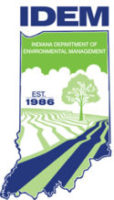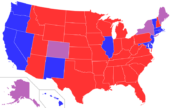 When the Air Quality Division of the Indiana Department of Environmental Management (IDEM) announced a proposal last year to move all of its public notice advertising from newspapers to its own website, its motivation for doing so was clear: Bureaucratic efficiency.
When the Air Quality Division of the Indiana Department of Environmental Management (IDEM) announced a proposal last year to move all of its public notice advertising from newspapers to its own website, its motivation for doing so was clear: Bureaucratic efficiency.
“(IDEM’s) proposal never even bothers to claim e-notice will reach more Indiana citizens,” PNRC noted in the comments we filed opposing the plan. “It focuses instead on cost, convenience and expedience. Those are all worthy goals. Unfortunately, none are the primary purpose of public notice laws.”
More Proof That Even in Big Cities, Many Still Don’t Have Access to the Internet
 Sarah Bowman is one of the young environmental reporters at the Indianapolis Star who wrote the IDEM story discussed in the post below.
Sarah Bowman is one of the young environmental reporters at the Indianapolis Star who wrote the IDEM story discussed in the post below.
About a week before the IDEM article was published, Bowman wrote another story about a state agency proposal to establish a bobcat hunting season in Indiana. She was surprised when she began receiving phone calls from readers who wanted to know where and when the Natural Resources Commission (NRC) would be holding a public hearing on its proposal. After all, her story about the plan had been published that morning and it included a graphic featuring those details.
Michigan Approves Controversial Nestle Proposal Despite Public Opposition
 Q: When does a vote of 80,945 to 75 result in a win for the 75?
Q: When does a vote of 80,945 to 75 result in a win for the 75?
A: When a state agency gets to cast the deciding ballot.
Although it wasn’t technically a vote, Michigan’s Department of Environmental Quality (MDEQ) last month approved Nestle Water’s controversial request to pump more groundwater for its Ice Mountain bottling plant despite that lopsided margin. In fact, NPR reports that the 80,945 public comments MDEQ received opposing the proposal set a record.
State Legislatures Back; Public Notice Safe for Now
 The New Year again brought with it a flood of new legislation curtailing the role of newspapers as the official source of public notice. Fortunately, none of the new bills appear to be an immediate threat and several have already been killed in committee or face imminent demise.
The New Year again brought with it a flood of new legislation curtailing the role of newspapers as the official source of public notice. Fortunately, none of the new bills appear to be an immediate threat and several have already been killed in committee or face imminent demise.
Here’s an overview of some of the states that have been most active since legislatures returned to work.
Budget Notices on Government Website Leave Indiana Citizens in the Dark
 In 2014, then-Indiana Governor Mike Pence signed a law passed by the Indiana legislature that eliminated newspaper notice of local government budgets. Before the law was enacted, all local government units in Indiana — from cities and counties to libraries and conservation districts — were required to publish their annual budget proposals and estimated tax rates in a local newspaper.
In 2014, then-Indiana Governor Mike Pence signed a law passed by the Indiana legislature that eliminated newspaper notice of local government budgets. Before the law was enacted, all local government units in Indiana — from cities and counties to libraries and conservation districts — were required to publish their annual budget proposals and estimated tax rates in a local newspaper.
Now they are only required to post them on the website of the state’s Department of Local Government Finance (DLGF), which was one of the main proponents of the new law.
